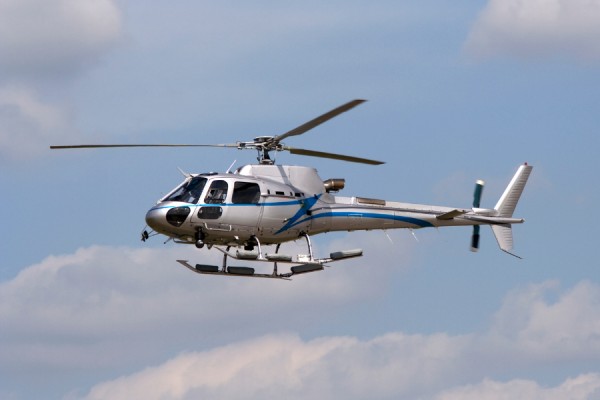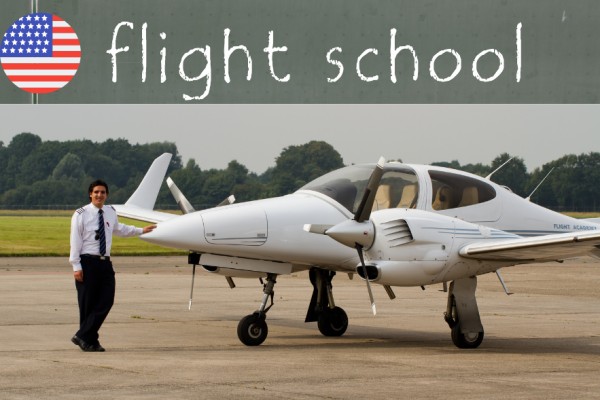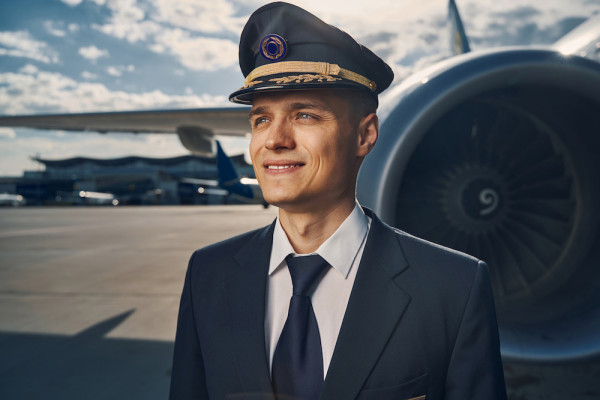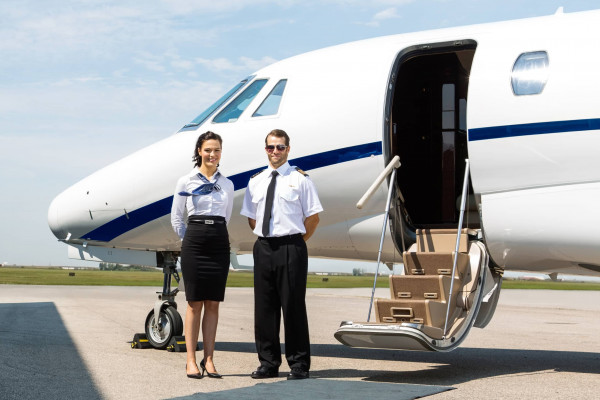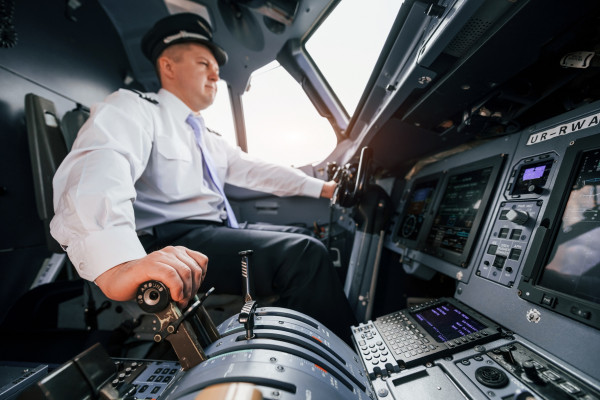- TRAINING
- 1 year before
Become a Cabin Crew Your Complete Guide
Unlock the secrets to becoming a cabin crew member with our expert guide. Learn essential steps, tips, and qualifications for your dream job in aviation
-

- 1 year before
- Category: TRAINING
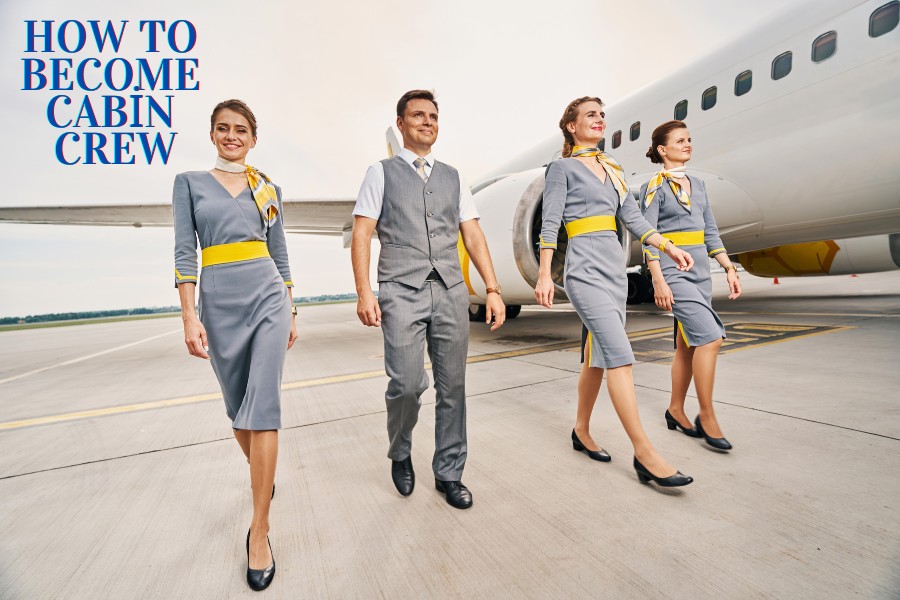
Embarking on a journey to become a cabin crew member is a dream for many, offering the chance to ensure passenger satisfaction, maintain safety standards, and travel the world. This comprehensive guide outlines the steps and insights necessary to navigate the path to a fulfilling career in the sky.
Understanding the Role of Cabin Crew
Cabin crew positions are essential in commercial aviation, focusing on customer service and adherence to safety protocols. Key roles include:
- Purser: The senior flight attendant oversees the cabin crew, ensuring compliance with safety measures.
- Flight Attendant: Assists passengers with needs, enforces safety, and provides customer service. Responsibilities increase on longer flights.
- Onboard Chef: Specializes in preparing meals for passengers on extended flights.
Duties of a Cabin Crew
Cabin crew members perform a variety of tasks aimed at enhancing passenger experience and safety, including:
- Conducting pre-flight briefings.
- Welcoming passengers and assisting with seating and luggage.
- Explaining safety procedures and ensuring compliance.
- Serving meals and refreshments.
- Addressing inquiries and resolving conflicts.
- Assisting in emergencies and facilitating safe disembarkation.
- Preparing flight reports and maintaining cabin cleanliness.
Steps to Become a Cabin Crew Member
Career Research: Understanding the role, including working hours, conditions, and salary, is crucial. The average salary ranges significantly based on experience and responsibilities.
Gain Customer Service Experience: Essential skills include communication, conflict resolution, leadership, the ability to work under pressure, and teamwork. These skills are transferable to the cabin crew role.
Flight Attendant School: While optional, attending a flight attendant school can equip you with knowledge and skills specific to aviation, such as aircraft types, first aid, and food handling.
Meet Job Requirements: Requirements typically include a high school diploma or GED, minimum age, physical fitness, and a background check. A valid passport and the ability to swim are also often necessary.
Application Photos: Professional photos, including a headshot and full-length image, are usually required.
Create a resume: Highlight customer service experience, education, language skills, and any relevant certifications.
Apply to Cabin Crew Positions: Utilize airline websites and job boards to find opportunities. The application process may include personality tests, interviews, and role-playing scenarios.
Tips for Aspiring Cabin Crew Members
- Prepare for Interviews: Practice responding to common interview questions and learn about various airlines to understand their specific requirements.
- Maintain Physical Fitness: Regular exercise can help meet the physical demands of the job.
- Consider Language Skills: Being bilingual or multilingual is advantageous when serving international passengers.
- Develop listening skills. Effective communication with pilots and passengers is essential for safety and service.
Pathways to Entry
Prospective cabin crew members can enter the field through:
- College Courses: Specific courses or modules related to air cabin crew are available.
- Apprenticeships: An advanced apprenticeship in cabin crew can provide on-the-job training.
- Direct Application: Airlines often accept direct applications, with customer service experience being highly valued.
Career progression may lead to supervisory roles or opportunities in training, recruitment, or marketing within the aviation industry. Regular exercise, language learning, and a customer-focused approach are keys to success.
Embarking on this career path requires dedication, preparation, and a passion for travel and customer service. With the right approach, becoming a cabin crew member can open the door to an exciting and rewarding career in aviation.
What qualifications do I need to become a cabin crew member?
- Minimum requirements usually include a high school diploma or equivalent, though some airlines prefer higher education or customer service experience.
Is there an age requirement for cabin crew applicants?
- Most airlines require applicants to be at least 18 or 21 years old, depending on the airline's policy.
Do I need to attend a flight attendant school?
- While not mandatory for all airlines, attending a flight attendant school can provide valuable training and increase your chances of being hired.
How can I improve my chances of becoming a cabin crew member?
- Gain customer service experience, maintain a high level of physical fitness, learn additional languages, and develop strong communication skills.
Are there physical requirements for cabin crew members?
- Yes, airlines often require a certain height range, the ability to reach overhead bins, good physical health, and sometimes specific vision and weight criteria.
Do I need to know how to swim to become a cabin crew member?
- Yes, most airlines require basic swimming skills as part of their safety requirements.
How long does cabin crew training last?
- Training duration varies by airline but typically ranges from 4 to 8 weeks.
Can I apply to be a cabin crew member if I have tattoos or piercings?
- Policies vary, but visible tattoos and piercings are often not permitted. It's best to check the specific airline's guidelines.
What languages should I speak to become a cabin crew member?
- English is mandatory, but knowing additional languages can make you a more competitive candidate, especially for international flights.
What is the salary for a cabin crew member?
- Salaries vary widely depending on the airline, country, and experience level, with an average base salary starting at around $35,000 per year.
Do cabin crew members get travel benefits?
- Yes, most airlines offer travel benefits, including free or discounted flights, hotel discounts, and more.
What kind of shifts do cabin crew members work?
- Cabin crew can expect a variety of shifts, including early mornings, late nights, weekends, and holidays, depending on flight schedules.
How can I apply for cabin crew positions?
- Apply directly through airline websites, attend open days or recruitment events, and keep an eye on job boards specific to aviation careers.
What does the cabin crew application process involve?
- The process typically includes an online application, an assessment day, group exercises, a one-on-one interview, and a background check.
Do cabin crew members need a passport?
- Yes, a valid passport is necessary, especially for international flights.
What kind of training do cabin crew members receive?
- Training covers emergency procedures, first aid, security measures, customer service, and specific aircraft features.
Can cabin crew members have a second job?
- Policies on second jobs vary by airline and may depend on scheduling and workload.
How often do cabin crew members fly?
- Flight frequency depends on the airline, route, and whether the crew is on short-haul or long-haul flights.
What career progression opportunities are available for cabin crew members?
- Opportunities include promotion to senior flight attendant, purser, or into management, training, or recruitment roles.
How can I stand out in the cabin crew application process?
- Highlight customer service experience, language skills, adaptability, and a positive attitude in your application and interview.

